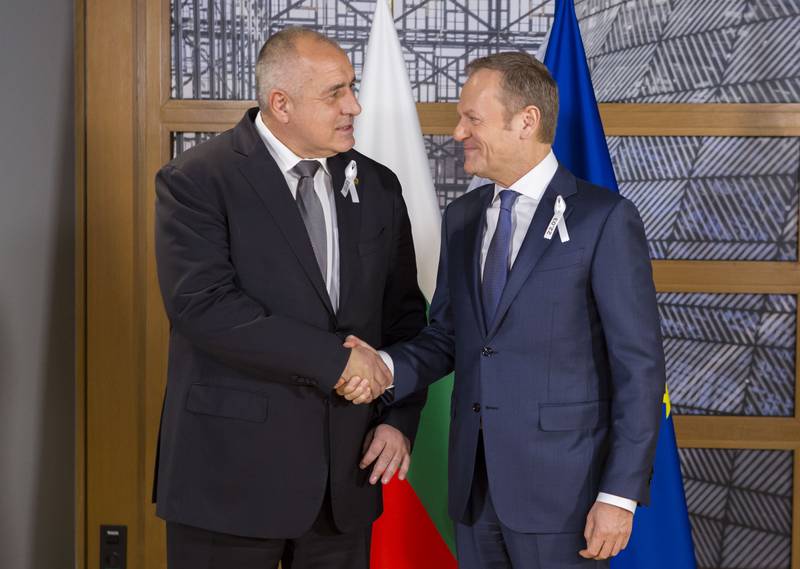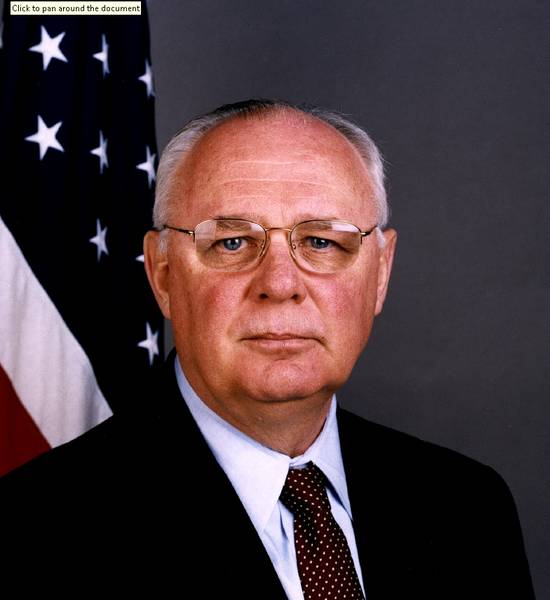A Genocide of European Values in Bulgaria*
Adelina Marini, March 20, 2014
How far will Putin go? This is the question not for one million dollars but for the world peace, because the situation has long gone out of control back when Putin demanded the Russian parliament to approve the deployment of additional troops on Crimea. Since then, tension has only been growing. If prevailing are positions that a new Cold war already is a fact because of the lack of dialogue and sharing of common values between the West and Russia, serious fears have started emerging of a third world war. What makes the forecasts extremely difficult is ... mentality. Even in Bulgaria, although we have not reached the end of the long path toward free, independent, democratic and prosperous nation, many of us take for granted that we can freely move from point A to point B, to write whatever we want on the social networks, to talk with our friends freely without fear of censorship.

That is why, it is very difficult for us to comprehend that a new world war is possible in the century of the digital economy, the Internet, travelling without birders (almost) and the right of a choice. It is hard for us to imagine that a country can attack another just because it wants, because of views that are alien to us and there is no way that we understand them. And this is the West's main problem (that rhetoric from the Cold war period) - because the West has closed the chapter of the reckless history of the 20th century, it learnt the lessons and moved on. Currently, it is interested only in how to deal with the consequences of the boom that was caused by the globalisation, how to adapt to the digital world against the backdrop of completely invalid political ideologies and the lack of new ones to replace them. The West is looking forward, while Putin is looking backward. And this is the first clash I would call, after Samuel Huntington, civilisational.
And when I said that we in Bulgaria have taken for granted our liberty, this is not quite true or not true for everyone. Bulgaria again is facing a civilisational choice. The country is being governed by a an obscure oligarchic coalition which, undoubtedly, is defending the Russian interests. With the tools of democracy, which is very fragile itself, the ruling parties have created an atmosphere of division into Russia-loving fans and Pro-Europeans which, against the backdrop of our 7-year old EU membership, is comparable to a genocide of the European values. In the past years, those who governed Bulgaria were busy rather with destruction of state foundations and intellectual lechery rather than with enhancement of the institutions and the rule of law. That is why our country continues to be the poorest in the European Union and in Europe it is only a bit better than Macedonia, Albania and Kosovo.
An even bigger a problem is that this government does not consider a priority taking the country out of the marsh. Since the gas crisis in the winter of 2009, no government did what was necessary to build the reverse gas connections with our neighbouring countries - Romania, Serbia, Greece, Turkey - which the European Commission secured money for from the EU budget. This continues to hold Bulgaria in a 100% energy and therefore economic dependence on Russia in case the situation to the east across the Black sea deteriorates further. Not only this, but the ruling parties openly acknowledge that not only they have no plan B, but they do not even have a plan A. In a recent interview, Foreign Minster Kristian Vigenin said unashamedly that the government still had not decided whether it would support and what kind of sanctions against Russia!
And these sanctions are already being prepared at EU level [the EU has already approved the second phase of the sanctions]. The first draft leaked in Reuters on March 12 and will be discussed by the EU foreign ministers on Monday (March 17th). Those envisage travel bans and asset freezes and further on it might come to trade sanctions which is very likely to lead to proper reactions by Russia like stopping the gas flows. Against the background of all this, Mr Vigenin says that South Stream is important for Bulgaria, but does not say why. He says, though, that if Moscow turned the gas off, Bulgaria would be severely affected.
Given the entire situation and all the potential risks, Bulgaria, again, will be unprepared to react to a danger which it had to have in mind long ago. Not only this, but the country's government is completely incapable to analyse and forecast risks to be able to protect its citizens, benefiting, in the same time, from the country's membership in the EU. The cherry on the cake is that this government has succeeded also to split society so that it will meet whatever a crisis is to come in complete lack of trust in their own powers. And that is equal to a murder of a nation.
*This text was published for the first time on March 14th in the Protest newspaper in Bulgaria under the title "How far will Putin go?"
 Boyko Borissov, Donald Tusk | © Council of the EU
Boyko Borissov, Donald Tusk | © Council of the EU Boris Johnson | © Council of the EU
Boris Johnson | © Council of the EU James W. Pardew | ©
James W. Pardew | ©